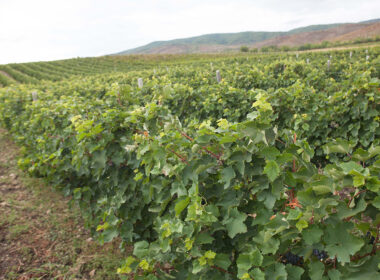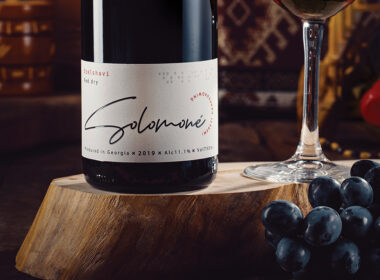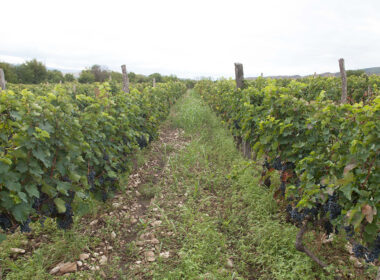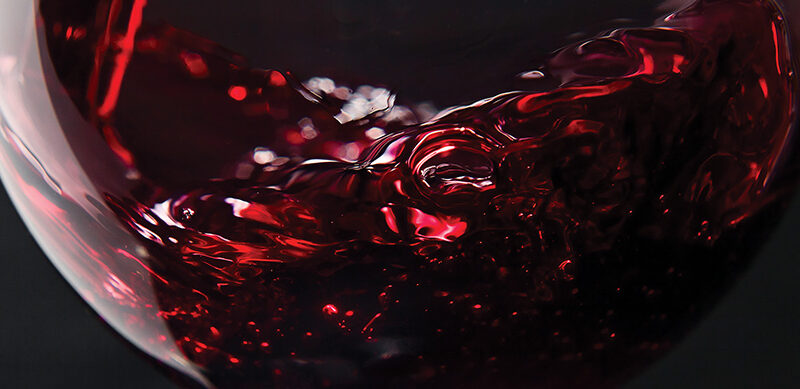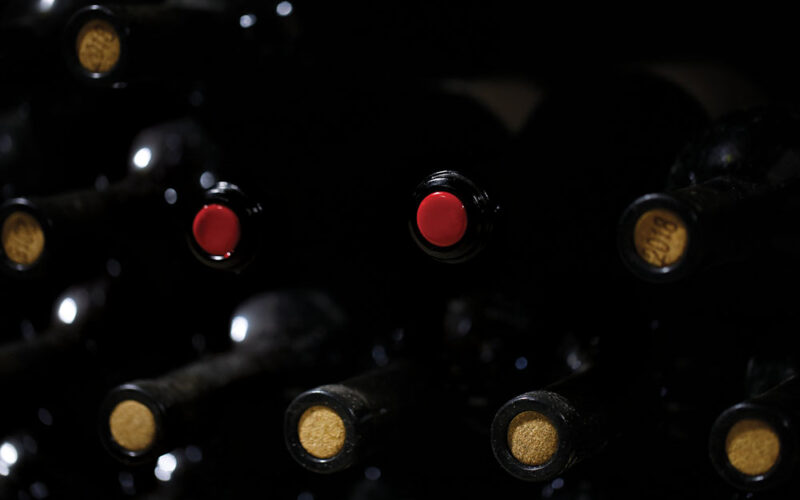| By Nana Jojishvili |
The UK market, following Germany, is one of the most competitive and diverse. I reached out to Julia Harding MW about Georgian wine and its positioning in this market. She visited the Guria wine region in Georgia last November. “Guria as a region was a discovery, as well as some varieties that I was less familiar with, such as Sakmiela and Skhilatubani, although Chkhaveri is also very interesting and versatile.”

Julia Harding MW
Senior Editor at JancisRobinson.com
Editor of The Oxford Companion to Wine
Julia notes that Georgian wines made in the European style are better suited to the taste of most English consumers than amber wines made in qvevri, even if the grape variety names are entirely unfamiliar to them. This reminded me of a comment by Katerina Iglesias during a tasting of Gurian wines at the Hamburg Wine Bank, when she said: “It’s a kind of barrier when you order a wine with a name that is hard to pronounce correctly.”
Interest in Georgian wine in the UK is also driven by the fact that consumers there are always looking for something new and different’’. However, despite this, interest in Georgian qvevri wine remains relatively low. The significant growth of Georgian wine in the UK market, both in volume and value, began in 2020.
According to a market study on the UK by IWSR 2024 (International Wine and Spirits Record) awareness of Georgian wine by demographic characteristics “Those aware of Georgian wine tend to be males over 65 and are significantly more likely to be highly engaged with wine, with nearly half of Georgian wine awares classifying as such. This group also aligns closely with the adventurous Explorers portrait segment, known for being the most confident and knowledgeable in wine of all the portraits segments”.
Georgia ranks alongside Greece, Romania, Hungary, Slovakia, and Uruguay in terms of recognition, with Georgian wine awareness at 15% relative to these countries. The same study shows that 47% of respondents express interest in Georgian wine. In terms of quality perception, Georgia leads in this category. According to the study, spatial mapping among those familiar with Georgian wine associates it with sustainability, growing popularity, and environmental friendliness.
ინგლისის ბაზარი, გერმანიის შემდეგ, ერთ-ერთი ყველაზე კონკურენტული და მრავალფეროვანია. ამავე ბაზარზე ქართული ღვინისა და მისი პოზიციონირების შესახებ ჯულია ჰარდინგს დავუკავშირდი, რომელიც გასული წლის ნოემბერში საქართველოში გურიის ღვინის რეგიონს სტუმრობდა.
„გურია და გურული ჯიშები, რომლებსაც აქამდე ნაკლებად ვიცნობდი, ჩემთვის ნამდვილი აღმოჩენა იყო. მაგალითად, საკმიელა და სხილათუბანი, ასევე ჩხავერი, რომელიც ძალიან საინტერესო და მრავალმხრივი ჯიშია.“
ჯულია ამბობს, რომ ინგლისელი მომხმარებლების გემოვნებასთან ქვევრის ქარვისფერ ღვინოებზე მეტად ევროპული სტილით დაყენებული ქართული ღვინოებია, მაშინაც კი, თუ ყურძნის ჯიშების სახელები მათთვის სრულიად უცნობია. სხვათა შორის, ქართული ღვინის სახელებთან დაკავშირებით კატერინა იგლესიასის ფრაზა გამახსენდა, ჰამბურგის ღვინის ბანკში გურული ღვინოების დეგუსტაციაზე რომ მითხრა: „ერთგვარი ბარიერია, როცა ისეთ ღვინოს უკვეთავ, რომლის სახელწოდების სწორად წარმოთქმა გიჭირს“.
ქართული ღვინით დაინტერესება ინგლისში იმითაც არის განპირობებული, რომ აქაური მომხმარებლები ყოველთვის ეძებენ რაღაც ახალსა და განსხვავებულს. თუმცა, ამის ფონზეც კი, ქართული ქვევრის ღვინის მიმართ ინტერესი ჯერ კიდევ საკმაოდ დაბალია. ინგლისის ბაზარზე ქართული ღვინის ინტენსიური ზრდა როგორც მოცულობით, ისე ღირებულებით 2020 წლიდან დაიწყო.
IWSR (International Wine and Spirits Record) მიერ ჩატარდა ინგლისის ბაზრის კვლევა და გამოიკვეთა ქართული ღვინის ცნობადობა დემოგრაფიული მახასიათებლების მიხედვით. ამ კვლევის თანახმად „ქართულ ღვინოს ყველაზე უკეთ იცნობს 65 წელს ზემოთ მამაკაცების კატეგორია, რომლებიც ღვინოში კარგად ერკვევიან. მათგან თითქმის ნახევარზე მეტი ახლოს დგას თავგადასავლების მაძიებელთა და მოყვარულთა სეგმენტთან, რომლებიც ღვინის სფეროში კარგად გათვითცნობიერებულნი და განსწავლულნი არიან“.
ცნობადობის მიხედვით, საქართველო (ქართული ღვინო) დგას საბერძნეთთან, რუმინეთთან, უნგრეთთან, სლოვაკეთთან და ურუგვაისთან. ქართული ღვინის ცნობადობის სკალა ამ ქვეყნებთან მიმართებაში შეადგენს 15%-ს. იგივე კვლევაში 47% გამოხატავს ინტერესს ქართული ღვინის მიმართ. რაც შეეხება ღვინის ხარისხს, აქ საქართველო ლიდერობს. კვლევის მიხედვით, ის კატეგორია, რომელიც იცნობს ქართულ ღვინოს, მას ახასიათებს როგორც მდგრად, ეკომეგობრულ პროდუქტს, რომლის პოპულარობაც მზარდია.

